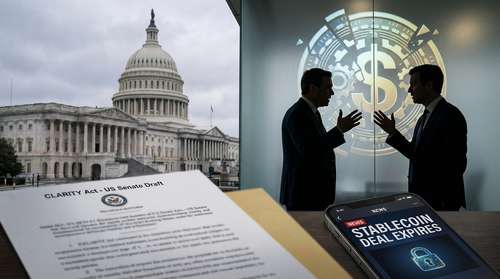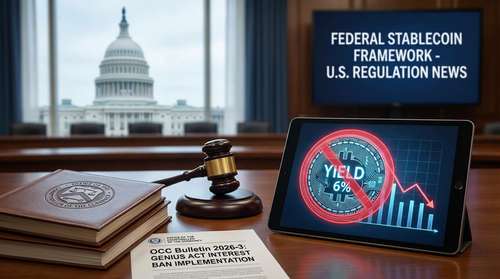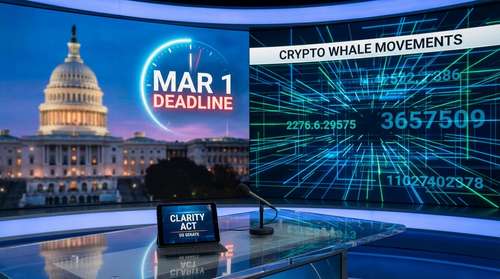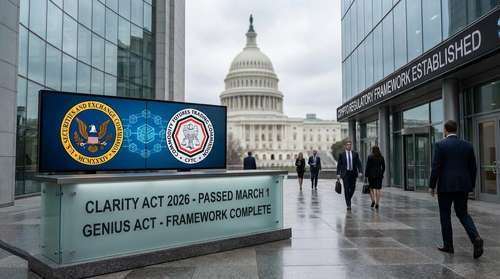Court Ruling: IRS Can Collect Coinbase User Data Without Warrants
This ruling is making waves across the cryptocurrency world. The U.S. Supreme Court recently declined an appeal from a Coinbase user, thereby allowing the IRS to collect data from more than 14,000 exchange users without the need for traditional warrants. It’s a decision that has left many users scratching their heads and wondering about the future of digital privacy in the financial space.
Many in the digital currency community are now asking, what does this mean for everyday Coinbase users? While on the surface the IRS’s power to collect user data may appear as a necessary move for tax compliance, it also raises serious privacy concerns. Diving into this discussion, you can see that what seems like a straightforward government decision is layered with complexities related to both legal precedent and digital currency innovation.
It’s important to understand that the debate here isn’t simply about numbers on a screen; it’s about balancing government authority with individual privacy rights in an era where cryptocurrency is becoming more and more mainstream. Surely, this is turning the way we view digital privacy on its head!
The Decision and Its Background
The court ruling in question marks a significant shift in how data collection is handled in the realm of digital currency exchanges. To break it down, the appeal brought by a Coinbase user was intended to stop the IRS from accessing their personal account data without a warrant. However, the court’s refusal to hear the appeal means that the IRS can continue pursuing its data collection efforts on Coinbase users without adherence to the strict warrant requirement that many had expected would protect user privacy.
This decision was based on a legal interpretation that sees the exchange of cryptocurrency data as falling under broader federal authority, particularly concerning tax compliance. The IRS has long argued that collecting user data is essential to ensure proper taxation of profits and to track potential fraudulent activities. As digital transactions increasingly become a part of everyday financial life, the government is keen on closing any loopholes that might allow tax evasion or financial manipulation.
When you look at the decision from a broader perspective, it’s really about reinforcing financial regulations in a space that was once seen as a haven for anonymity. The judges took a narrow approach, focusing on the need for effective tax compliance rather than on the broader implications of personal data collection through cryptocurrency exchanges.
Privacy Concerns and Legal Precedents
Before this ruling, many believed that the data held by Coinbase and other exchanges was protected by the expectation of privacy inherent in digital transactions. This court ruling challenges that common notion by effectively permitting the IRS to bypass traditional warrant procedures when it comes to Coinbase user data. The idea here is that public interest, particularly in securing tax revenues, outweighs individual privacy rights in digital currency movements.
With the ruling in place, legal experts are warning that this could set a precedent for further government surveillance over not just cryptocurrency transactions but also other non-traditional financial platforms. It’s a pivotal legal decision that could signal a shift towards more aggressive data collection practices by the government. Imagine feeling like your every financial move is being monitored—a sentiment that resonates with a lot of people.
Legal circles are buzzing with discussions on how such moves align with the Fourth Amendment rights, a cornerstone in protecting citizens against unreasonable searches and seizures. Many analysts argue that this decision creates a slippery slope where government authority might expand unchecked, raising more questions than answers about legal precedent in modern digital contexts.
Implications for Cryptocurrency and Financial Regulations
This ruling isn’t happening in a vacuum; it directly impacts the broader ecosystem of cryptocurrency exchanges. The IRS’s ability to collect user data without warrants is seen as a double-edged sword. On one side, it supports tax compliance and ensures that users pay their fair share. On the other hand, it raises serious questions about user privacy and the integrity of digital financial transactions.
For many Coinbase users, this decision is both surprising and unsettling. You might wonder, isn’t the trust between a user and a financial platform built on the promise of secure and private transactions? The court ruling has blurred that line, pushing both regulators and users into uncharted territory. It also highlights an increase in government oversight, something that many in the crypto community have long resisted.
This isn’t just theoretical – the changes could very well impact how cryptocurrency exchanges operate in the near future. Some experts predict that increased surveillance might push innovation away from traditional platforms like Coinbase to more privacy-centered alternatives, while others see opportunities for platforms to prove their resilience in managing both tax compliance and privacy. The tension between regulation and innovation here is as palpable as it is controversial.
Furthermore, the ruling has far-reaching implications on how digital currency is regulated across the board. By reinforcing the IRS’s authority, it essentially expands the scope of what is considered acceptable in terms of data collection, a move that may force exchanges to enhance their transparency measures while drawing users into a debate about their financial freedoms.
What This Means Moving Forward
This legal decision forces us all to reexamine where the balance lies between effective tax compliance and individual privacy. There is no simple answer, as the debate touches on key issues like financial regulations and government authority. As the cryptocurrency landscape evolves, so too will the legal frameworks that govern them. It’s like watching a living, breathing organism adapt to an ever-changing environment—only here, the stakes are personal data and financial freedom.
Many Coinbase users now find themselves at a crossroads, weighing the benefits of participating in a robust digital economy against the potential trade-offs in privacy. It’s a reminder that progress in digital finance often comes with a cost and that regulation is as much about protecting state interests as it is about ensuring fair play in the market.
The ongoing conversation around data collection, user privacy, and government authority remains vibrant. Discussions in online forums, legal analysis in mainstream news, and even casual conversations at local meet-ups now include this court ruling. In many ways, it serves as a milestone that will continue to be referenced in countless debates about the future of cryptocurrency and financial regulations.
Conclusion
In summary, the court ruling that permits the IRS to collect Coinbase user data without warrants represents a seismic shift in how financial regulations intersect with personal privacy in the digital age. While the move aims to enhance tax compliance and tighten financial regulations, it also raises significant privacy concerns that are likely to reverberate through the cryptocurrency community. As we move forward, both regulators and users must navigate these uncharted waters carefully, weighing the benefits of secure tax collection against the fundamental rights to individual privacy. It’s a balancing act that will undoubtedly shape the future of digital currency and government oversight in America.




